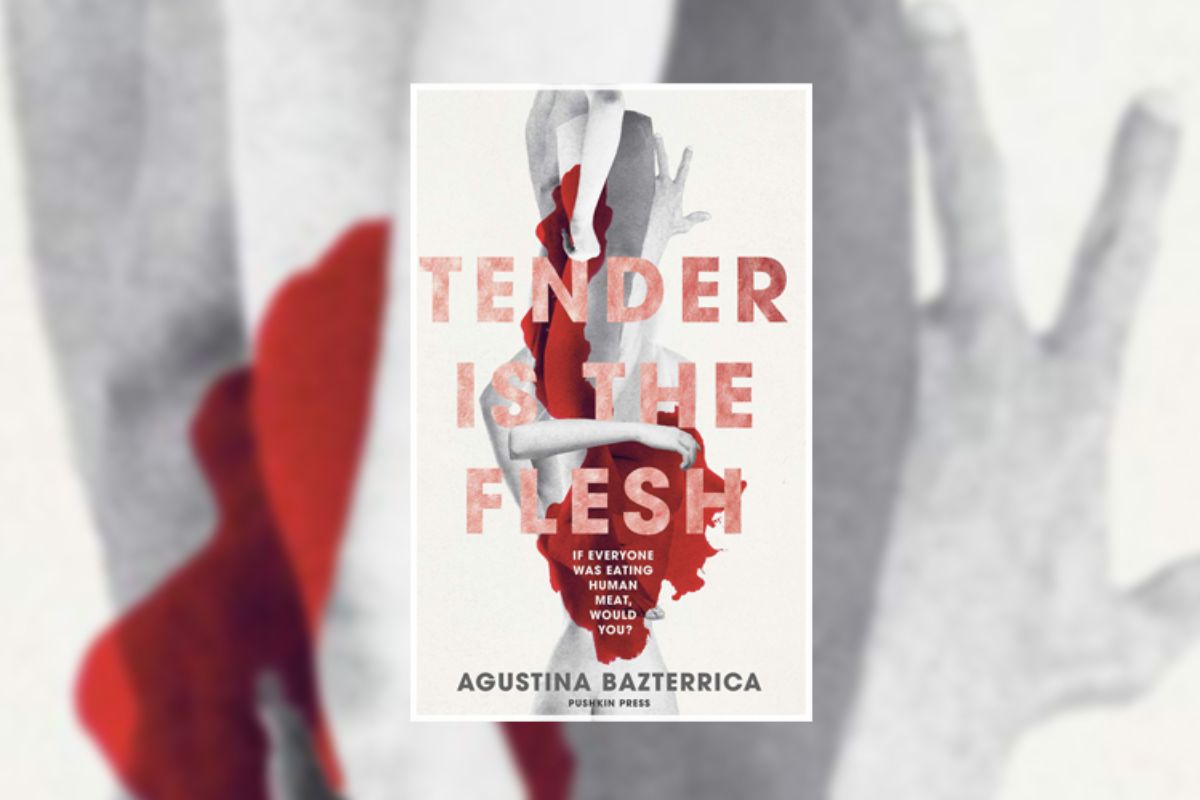Imagine a world where humans are bred, processed, and eaten up as meals. This chilling premise is the muse of Tender Is the Flesh, a dystopian novel by Argentinian creator Agustina Bazterrica. With its provocative issues and unsettling narrative, this ebook has sparked conversations about morality, society, and human circumstances. In this article, we’ll delve deep into Tender Is the Flesh, exploring its story, subject matters, and effect.
Overview of Tender Is the Flesh
Tender Is the Flesh is a harrowing story set in a world where a mysterious virus has rendered all animal meat unsafe for consumption. As a result, people are reclassified as “special meat” and come to be the number one supply of protein. The novel follows Marcos Tejo, a man operating within the meat processing enterprise, as he grapples with his position on this horrifying reality.
Published in 2017 and translated into English in 2020, the book has received full-size acclaim for its effective prose and concept-frightening commentary. It’s a dark, unsettling examination that forces readers to confront uncomfortable truths approximately humanity.
Plot Summary
The tale begins with Marcos coping with a slaughterhouse that methods human meat. Despite his expert demeanor, Marcos is deeply stricken by way of his paintings. He’s grieving the latest loss of his infant son and his estranged spouse, which adds to his internal battle. His activity includes overseeing the production of “unique meat,” ensuring that every step complies with strict rules.
One day, Marcos receives a “gift”—a live female specimen, referred to as a “head.” While those people are bred and raised as farm animals, Marcos’ decision not to slaughter her marks a turning factor in the narrative. As the tale unfolds, his relationship with the “head” evolves in surprising ways, leading to a surprising and unforgettable conclusion.
The novel masterfully builds anxiety, intertwining Marcos’ non-public struggles with the horrifying realities of his career. Through his experiences, readers benefit from a chilling insight into the dehumanized world Bazterrica has built.
Themes Explored in Tender Is the Flesh
Dehumanization
The novel’s middle subject revolves around the dehumanization of people. By referring to humans as “special meat” and avoiding personal connections, society justifies its ugly practices. This mirrors real international troubles, which include industrial farming and systemic oppression.
Bazterrica uses language to emphasize this dehumanization. The “heads” are stripped of identity, and reduced to mere commodities. This linguistic detachment highlights how language can be a tool for justifying atrocities.
Moral Ambiguity
Tender Is the Flesh challenges readers to look at their ethical compass. Marcos’ internal battle highlights the complexities of survival in a morally bankrupt society. Can one continue to be moral in an unethical global?
Marcos is neither a hero nor a villain. His moves, while complicit in the system, are driven by way of necessity and grief. This ambiguity forces readers to impeach their judgments and not forget the wider societal context.
Power and Exploitation
The book evaluates the abuse of electricity and the exploitation of susceptible populations. The commodification of human beings serves as a metaphor for broader societal inequalities. Those in energy control and manipulate others, perpetuating a cycle of exploitation.
The virus that necessitates this shift to “special meat” turns into an allegory for crises that exacerbate present inequalities. The wealthy make the most of the negative, justifying their movements through necessity and survival.
Environmental and Ethical Questions
The novel raises questions on consumption, sustainability, and ethics. It compels readers to reflect on their courting with food, assets, and the environment. In an international dealing with weather change and useful resource depletion, Bazterrica’s dystopia feels eerily manageable.
By paralleling business farming practices with the treatment of humans, the book critiques humanity’s detachment from the consequences of consumption. It asks whether or not survival justifies moral compromise.
Writing Style and Structure
Bazterrica’s writing is both stark and poetic. Her use of short, impactful sentences creates a feeling of urgency and soreness. The e-book’s unflinching descriptions of the meat-processing industry are image but functional, emphasizing the gruesome truth of the world she has constructed.
The narrative is divided into elements, each meticulously crafted to construct anxiety and deepen the reader’s understanding of Marcos’ psyche. Bazterrica’s selection to withhold positive info, including individual names and backstories, enhances the tale’s universality.
This minimalist style leaves an area for readers to undertake their interpretations, making the tale’s horrors experience personal and instant. The pacing is planned, permitting the load of each scene to sink in.
Highlights and Critique
Highlights
Thought-Provoking Themes
The ebook’s exploration of morality, society, and humanity is deeply impactful.
Complex Protagonist
Marcos’ inner warfare adds intensity and relatability to the tale.
Unforgettable Ending
The stunning end leaves an enduring effect, sparking further reflection.
Rich Symbolism
Every issue of the sector, from the slaughterhouses to the language, contains symbolic weight.
Critique
Graphic Content
The specified descriptions can be too severe for a few readers.
Bleak Tone
The novel’s unrelenting darkness can be overwhelming in some instances.
Limited Character Development
Some secondary characters lack intensity, serving more often than not as vehicles for the plot.
Pacing Issues
The gradual buildup may also check the staying power of readers looking for instant motion.
Why You Should Read Tender Is the Flesh
Unique Premise
The dystopian international Bazterrica creates is in contrast to something you’ve encountered earlier.
Social Commentary
The novel’s critique of societal norms and ethics is timely and relevant.
Emotional Impact
The tale conjures up a wide variety of emotions, from horror to empathy.
Unparalleled Depth
The e-book’s layers of meaning make it a wealthy and worthwhile study
FAQs
1. What genre is Tender Is the Flesh?
It’s a dystopian novel with factors of horror and social statement.
2. Is Tender Is the Flesh appropriate for all readers?
No, the e-book’s picture content and dark themes might not be suitable for touchy readers.
3. What stimulated Agustina Bazterrica to put in writing the novel?
The author becomes motivated using her observations of business farming and societal inequalities.
4. Does the e-book have a sequel?
No, Tender Is the Flesh is a standalone novel.
5. Where can I buy the e-book?
The e-book is to be had in bookstores and online stores like Amazon and Audible.
Conclusion
Tender Is the Flesh is a haunting and provocative novel that challenges readers to confront uncomfortable truths about humanity. Agustina Bazterrica masterfully weaves a story that is as idea-scary as it’s miles unsettling. While its photograph content material and bleak tone may not be for every person, the e-book’s effective issues and unforgettable tale make it a must-read for lovers of dystopian fiction.
For the ones brave sufficient to discover its chilling world, Tender Is the Flesh offers a profound and eye-opening enjoyment—one which lingers long after the very last web page. Its critique of society and exploration of morality make certain of its relevance, making it a book that demands to be discussed, analyzed, and remembered.












